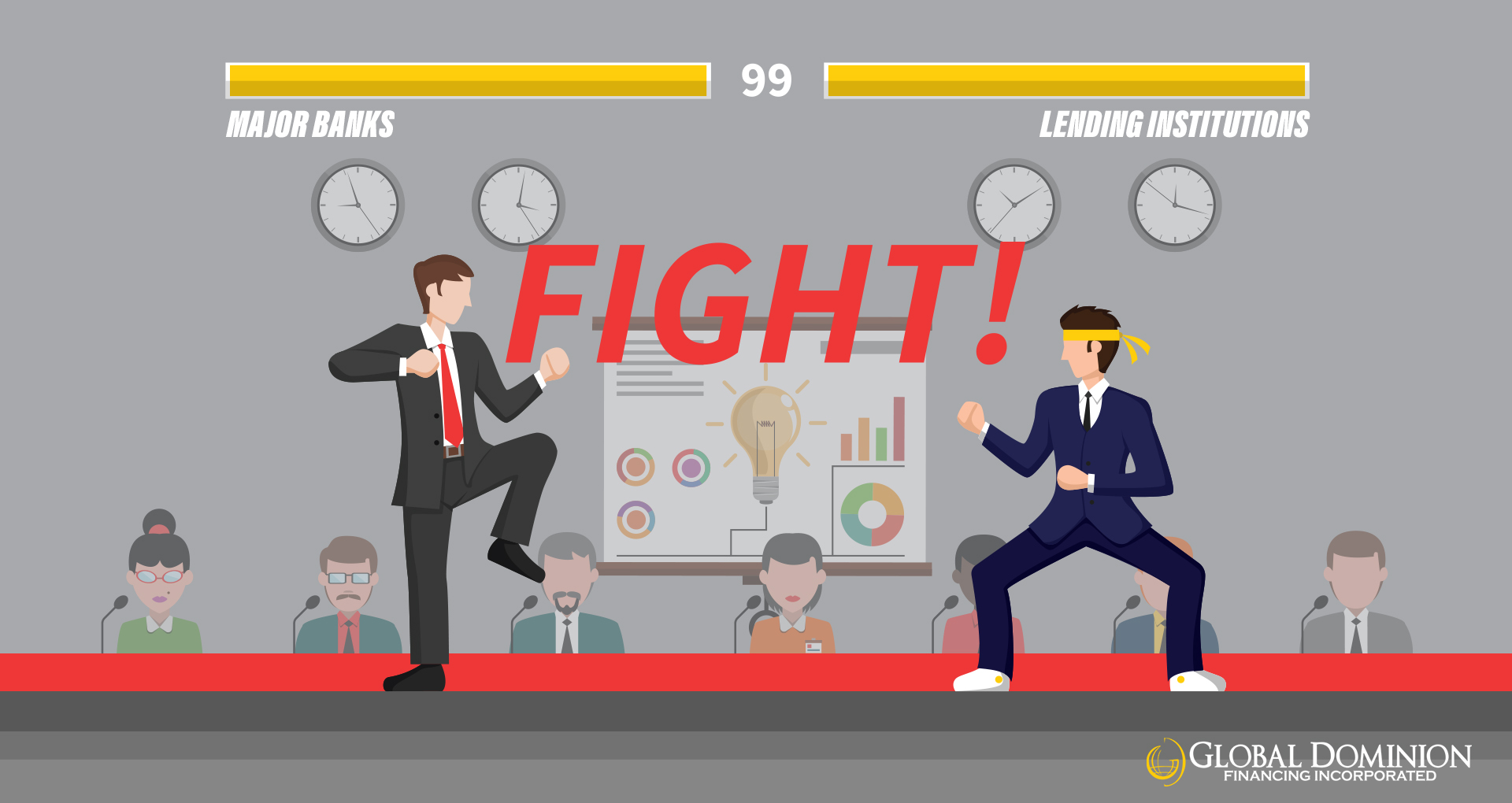Banks vs Lending Institution Business Loans: Pros and Cons

Business loans are either a life-saving solution to your troubled enterprise or a head start to new endeavors. A lot of financing companies can grant you this sum of money you needed, and it is your responsibility as a business owner and a borrower to know which option suits you best.
Through their pros and cons, let us compare the business loans from the bank versus lending institution.
What is debt financing?
Debt financing pertains to the method of obtaining additional working capital through secured or unsecured loans. It has a repayment plan like a mortgage where terms are agreed upon by both parties. Once the loan is paid, the relationship between the borrower and the lender also ends. Businesses have various purposes in getting this loan, all of which are directed to operations and investment decisions.
Top sources of business loan
You can get business loans from these providers:
1. Private lending companies (Non-bank)
Private lenders are those non-bank institutions that provide personal or business loans. These lenders also have physical offices and others known as FinTech companies operate online. The application processes are usually simpler and their service is more personalized.
Non-bank lending companies used to be an alternative solution next to banks. But the number of borrowers resorting to private companies has increased that it also has become essential in the lending industry.
2. Banks
Banks remain as one of the main financiers because of its established financial reputation. They offer adaptable loan terms and payment methods – an option beneficial to borrowers, especially if they don’t miss their repayment plan.
Bank loans, on the other hand, strictly follow eligibility and requirement check. The process may take longer as the bank wants to ensure that the business has stability and strong cash flow.
3. Government agencies
Another source of business loans is the government. There are various agencies such as DTI, SB Corporation, and cooperatives that provide financing services to businesses of different asset sizes. However, the article focuses on two types of financing sources from private institutions.
Pros of Non-bank Lending
These are some of the advantages of non-bank loans:
- There are fewer documentary requirements, which makes your application easier and hassle-free.
- Unlike bank loans, there is a higher approval rate with private lending companies.
- There is little or no credit history check in the application process. This backs up the high approval rate of your application.
- Loan processing and services can be exceptional compared to banks because these are much simpler and faster.
Cons of Non-bank Lending
These are a few disadvantages of non-bank loans:
- Private companies may sell your loan to a different lender should their business hits rock bottom. This can happen to all lenders, but banks are more likely more secured to this scenario.
- Non-bank lenders give loan terms that are short and hardly negotiable. The bigger the amount owed, the more difficult it will be for the borrower to repay his or her debt.
- Without caution, borrowers may get involved in unregistered private lending companies and fall for scams.
Pros of Bank Loans
Here are the benefits of business loans from the bank:
- Compared to short-term loans from online lenders and quick loans via credit cards, it is guaranteed that the interest rates are lower and fixed.
- Upon signing the loan agreement, your monthly payments are indicated clearly. There are no hidden charges and you will pay what you expect.
- Good payment habit to bank loans contributes to building a good credit history and a positive relationship with the bank.
Cons of Bank Loans
Here are the drawbacks of business loans from the bank:
- The processing of business loans from the banks usually takes longer because of the many paperwork and steps involved such as the assessment of business financial standing and the borrower’s credit history. If your need for financing is urgent, banks may not be the best option.
- Having no strong personal credit report or lacking enough data to build up your financial profile undermines your chance of getting loan approval from the bank.
- Banks prefer loans of a higher amount, which may be more than what the borrower wants to get.
- The percentage of getting rejected is high if your business is deemed by the banks risky. This is indicated by weak income generation, bad credit history, or the hazard-related nature of your company.





